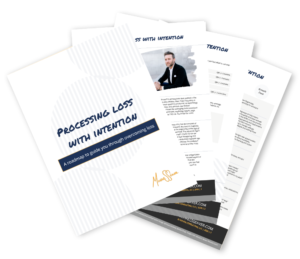If you have a friend or family member who works in the restaurant industry, you’ve probably heard this person say, “Everyone should wait tables at least once in their lives.”
It’s one of those jobs that, until you do it yourself, seems like it would be fairly easy. Right? But those who’ve done it know it’s more difficult than it looks. You’re juggling not only trays, plates, food and drinks (and, of course, wildly beloved olive oil), but the needs and personalities of a rotating cast of dozens of hungry and/or stressed out people at any given moment.
So, once you’ve actually done the job (and survived it), you become a generous tipper for the rest of your days…with deep and lasting empathy for your fellow server, whether you happen to be a customer in a chaotic diner or an exclusive bistro featuring more than one Michelin star.
I bring this up because we are in the midst of a society-wide dinner rush right now, and the food is definitely not coming out of the kitchen at the speed we’re used to enjoying.
Simply put, people are stressed out. Perhaps you are one of them.
Our Cortisol is Surging
According to CNBC, researchers from the University of North Carolina Chapel Hill and Harvard Medical School did a survey in the second half of May and found that 55% of people reported being more stressed than they were in January. Sixty-six percent were stressed about the health and safety of a loved one; 58% reported being frustrated they couldn’t participate in usual activities, and 53% were concerned about personal finances.
Another springtime study, published in the Journal of General Internal Medicine and reported on by ScienceDaily, surveyed over 1,000 English-speaking adults living in the United States and found:
- 97% felt stress reading or hearing about the severity and contagiousness of COVID-19
- 88% felt stress about changes to personal care routines
- 80% felt uncertainty about the duration of social distancing requirements
If we are going to get through this awakening together—without burning out entirely—we’re all going to need to have more empathy for one another, particularly in the workplace. I’d love it if leaders started engaging their teams with more discussion of what’s happening in everyone’s home lives and how it’s impacting them day-to-day.
Interrupt the Steady Accumulation of Stress
We can’t let stress get to the tipping point. In small yet significant ways, we all manage a wide variety of stressors every day we live. The problem occurs when the amount of stress your body is holding onto grows and grows without ever being processed and released.
Then suddenly, an unimportant event causes an emotional outburst (often in restaurants) or physical illness.
Empathy is the ability to understand and share the feelings of another—to identify with or vicariously experience the feelings, thoughts, or attitudes of another person. This ability is not fixed, meaning it’s not something you’re born with at a certain level and it never improves. Rather, you can learn empathy.
It requires stepping outside of your own needs, assessing and removing bias and privilege, actively listening to people close to you, and then acting. By bringing a strong dose of empathy to your leadership role, you’ll help your team members acknowledge and process their stressors instead of letting them accumulate into a giant health or work performance issue. Empathy is no longer a “nice to have” so-called soft leadership skill. It’s imperative for the smooth functioning of any high performing work team.
As I wrote several years ago, empathy is a key component of emotional intelligence, which is a skill that serves as the foundation of your leadership brand and is increasingly important as you climb organizational ladders. In fact, the Center for Creative Leadership analyzed data from 6,731 managers in 38 countries and found that “empathy in the workplace is positively related to job performance. Managers who show more empathy toward direct reports are viewed as better performers in their job by their bosses.”
Grow Your Capacity for Empathy
So, how can you show more empathy to your colleagues? Here are some steps you can begin to take today.
- First, look for tell-tale signs of burnout in your people. Are you seeing an individual putting in more hours than usual? Are you noticing a lot of weekend emails or, conversely, a drop in productivity? Other signs of burnout include emotional outbursts, unhappy calls from clients, disengagement, and staff turnover. To reduce stress, check-in. Text or call each colleague each week to let them know you’re thinking of them and care about what is going on in their lives. Listen to what they say.
- Know what your colleague values. Find out what language of appreciation each person on your team responds to best. Ask about their long-term goals, hobbies, family interests, core values, and favorite work tasks. To reduce stress, make a sincere effort to match projects to each colleague’s growth plan.
- Assist with personal issues at work. With stay-at-home orders, the lines between work and life are blurred. So, to reduce stress, open new (and sometimes uncomfortable) lines of communication, listen actively, offer staff psychologists, facilitate training, and share new resources. The idea is to create a more humane workplace overall.
- Help your people redistribute time. Be practical. Don’t ask your over-burdened colleagues to participate in Zoom calls all day, for example, then attend a virtual team happy hour. Instead, to reduce their stress level, continually ask how what they’re working on is helping them accomplish their goals or the team’s goals. If a task is not connected, delegate the work elsewhere.
- Establish a forum to share coping mechanisms. Don’t close yourself off. Share other employee stories, and examples of what’s helping them release stress. Think through and talk about how to cull low-profit-margin clients. Be open and generous with tips regarding money management and the methods you are using to keep your own family safe. In other words, to reduce stress, be vulnerable and share your own struggle with 2020 in group settings.
Friendships at work, in person or virtual, are the difference between surviving stress and burning out.
A one-size-fits-all approach won’t work here; instead, dial into the specific needs and concerns of each of your employees.
When I was a teen, I watched employees of the family business leave and started to ask why. It really stuck in my brain—way back in the day—that when we as leaders don’t deliver empathy, we lose good people like clockwork. Our society, to this point, has not been great at creating a sense of emotional safety in the workplace, and this has to change if we want our organizations to thrive. The alternative? Employee disengagement, lost productivity, and high turnover, particularly during times of upheaval.
The benefits of being an empathetic leader have been shown time and time again. When we can see ourselves in one another, happiness goes up, turnover drops, teams coalesce and amazing things happen. And you don’t even have to work as a restaurant server to make it happen!
Use the past as a learning device, but focus on the now…and on what you can create with your people in the future.
If you need help through this process, reach out today. I’ll bring the olive oil.






Connect with me